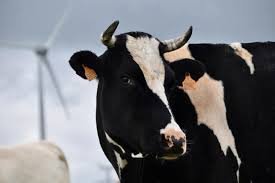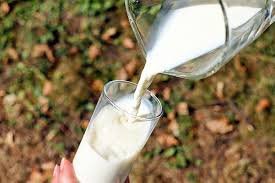
How Good Is Cow Milk for Weight Loss?
In the quest for effective weight loss solutions, many individuals turn to dietary choices that promise health benefits and simplicity. One such staple in the diet of many around the globe is cow milk. This article delves into the nutritional properties of cow milk, its role in weight loss, and provides insights into whether it can be an ally in your weight loss journey.
The Nutritional Profile of Cow Milk

A typical cup (240 ml) of whole milk contains:
- Calories: 149
- Protein: 8 grams
- Fat: 8 grams
- Carbohydrates: 12 grams
- Calcium: 276 mg (28% of the Recommended Daily Intake – RDI)
- Vitamin D: 124 IU (16% of the RDI)
- Vitamin B12: 1.1 mcg (18% of the RDI)
- Riboflavin (Vitamin B2): 0.4 mg (26% of the RDI)
- Phosphorus: 222 mg (22% of the RDI)
- Potassium: 322 mg (9% of the RDI)
These nutrients make cow milk a powerhouse of vitamins and minerals necessary for overall health.
Protein Content and Satiety
One of the critical components of cow milk that can aid in weight loss is its protein content. Protein is known to increase feelings of fullness and reduce hunger levels more effectively than fats or carbohydrates. The protein in cow milk is primarily made up of casein and whey, both of which have high biological values, meaning they contain all the essential amino acids the body needs.
When you consume foods high in protein, you are likely to feel fuller for longer, which can help reduce overall calorie intake. A study published in the “American Journal of Clinical Nutrition” found that high-protein diets are associated with increased satiety and reduced food intake, leading to weight loss.
The Role of Calcium
Cow milk is also an excellent source of calcium, a mineral that has been linked to weight loss and fat metabolism. Calcium plays a vital role in the body’s ability to burn fat efficiently. Research suggests that a higher intake of dietary calcium can lead to increased fat excretion and reduced fat absorption in the body.
A study in the “British Journal of Nutrition” indicated that individuals who consumed higher amounts of calcium lost more weight compared to those with lower calcium intake. This is because calcium is believed to bind to small amounts of dietary fat and prevent its absorption, which is then excreted from the body.
Impact of Fat Content in Cow Milk
The fat content in cow milk varies depending on the type you choose: whole milk, 2% reduced-fat milk, 1% low-fat milk, and fat-free (skim) milk. While whole milk contains about 8 grams of fat per cup, skim milk has negligible fat content.
For weight loss, many experts recommend opting for low-fat or fat-free milk. These options provide the same essential nutrients as whole milk but with fewer calories and less fat. For instance, a cup of skim milk contains about 83 calories and 0.2 grams of fat, making it a more calorie-friendly choice for those aiming to lose weight.
Lactose Intolerance and Alternatives
Lactose intolerance is a common issue that affects many individuals worldwide. Symptoms of lactose intolerance include bloating, gas, and diarrhea, which can be uncomfortable and disruptive.
Incorporating Cow Milk into a Weight Loss Diet
To effectively incorporate cow milk into a weight loss diet, it’s essential to consider the overall balance of your diet and lifestyle.
- Choose the Right Type: Opt for low-fat or fat-free milk to reduce calorie and fat intake.
- Moderation is Key: While cow milk can be beneficial, consuming it in moderation is crucial.
- Combine with a Balanced Diet: Ensure your diet includes a variety of nutrient-dense foods, such as fruits, vegetables, whole grains, lean proteins, and healthy fats.
- Use as a Meal Supplement: Cow milk can be a great addition to smoothies, oatmeal, or as a base for healthy soups, providing both nutritional benefits and enhancing satiety.
- Stay Active: Combine a balanced diet with regular physical activity to optimize weight loss and overall health.
The Potential Downsides
While cow milk has many benefits, it is essential to be aware of potential downsides. Some individuals may have an allergy to cow milk proteins, which can cause symptoms ranging from mild discomfort to severe allergic reactions. Additionally, some studies suggest that high consumption of dairy products may be linked to certain health issues, such as an increased risk of prostate cancer, although more research is needed in this area.
Moreover, the environmental impact of dairy farming is a growing concern. The production of cow milk requires significant water and land resources and contributes to greenhouse gas emissions. For environmentally conscious consumers, considering plant-based alternatives might be a preferable option.
Conclusion
Cow milk can be a valuable component of a weight loss diet due to its high protein content, calcium benefits, and nutritional richness. By choosing low-fat or fat-free options and incorporating it into a balanced diet and active lifestyle, cow milk can help support weight loss goals. However, individual tolerance and environmental considerations should also be taken into account when making dietary choices. Always consult with a healthcare provider or nutritionist to tailor dietary decisions to your specific needs and health conditions.
In conclusion, cow milk, with its plethora of nutrients, holds potential benefits for those looking to lose weight. It offers satiety through its protein content, aids in fat metabolism with its calcium levels, and can be included in various ways in a balanced diet. When consumed mindfully and in conjunction with a healthy lifestyle, cow milk can indeed be a good addition to a weight loss plan.
